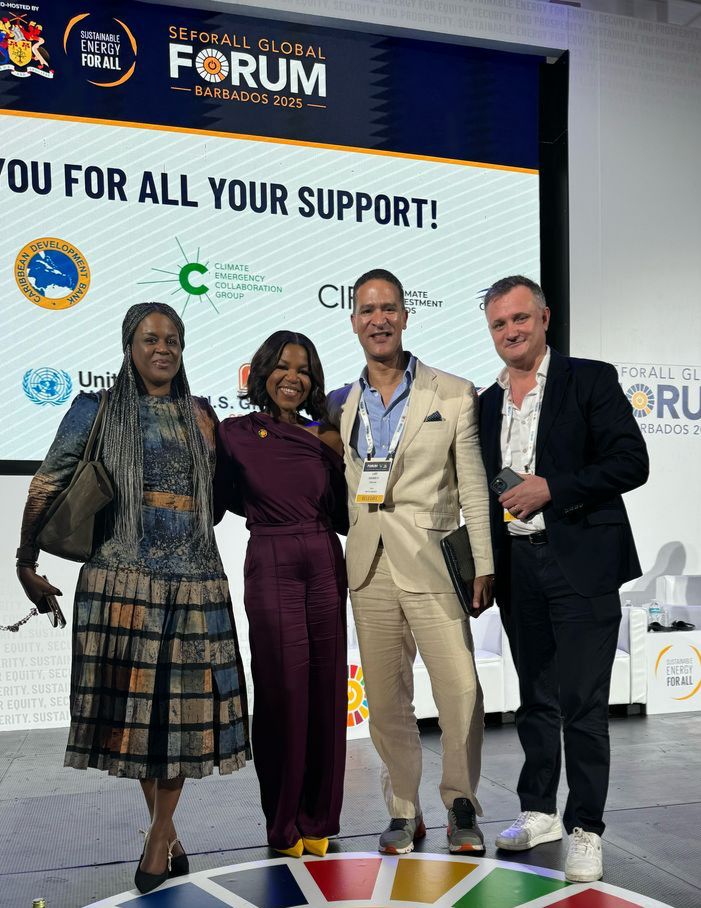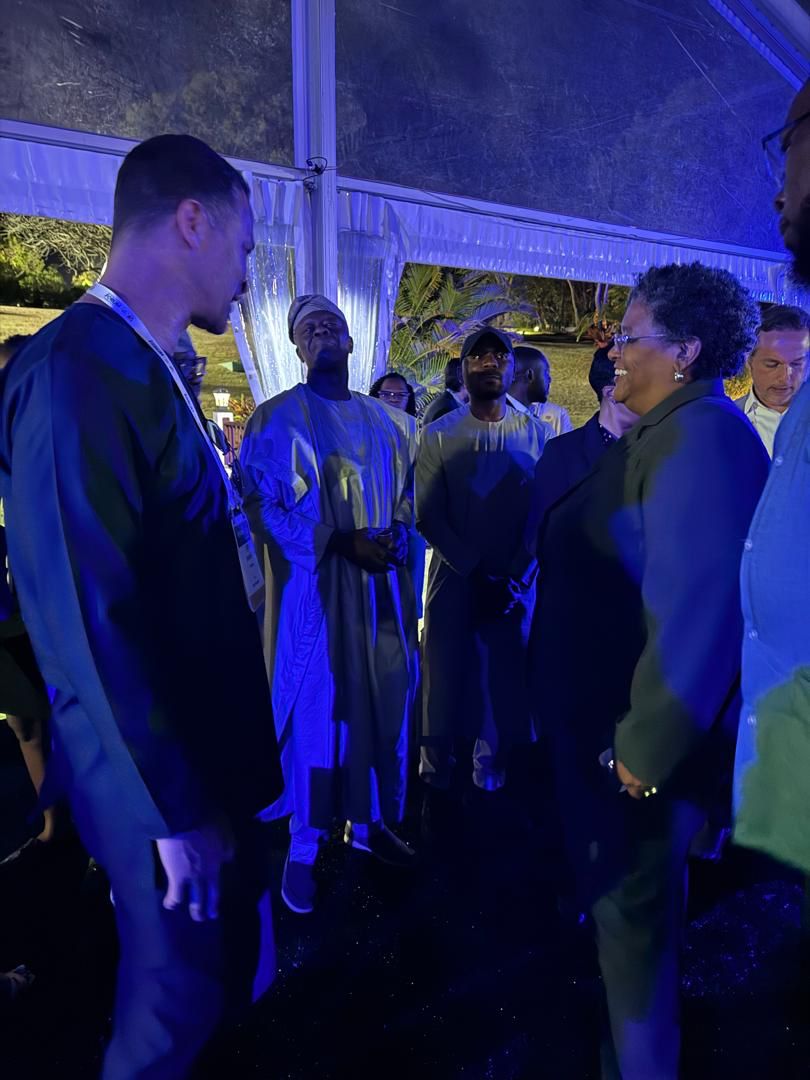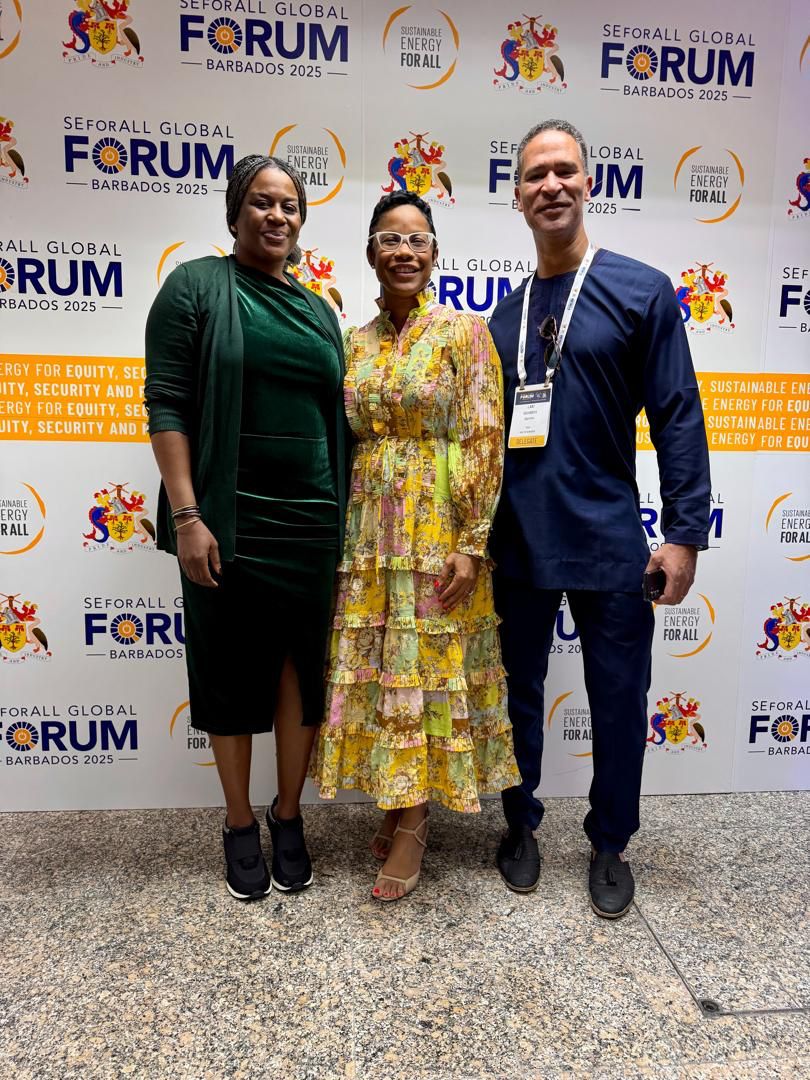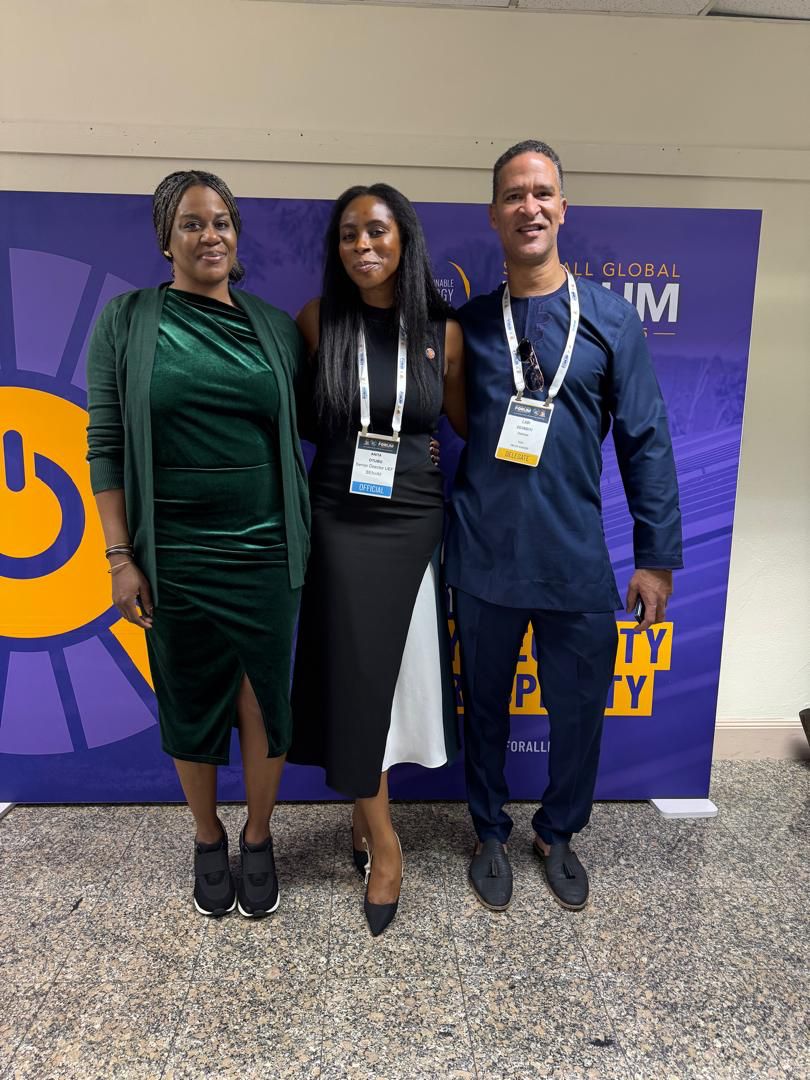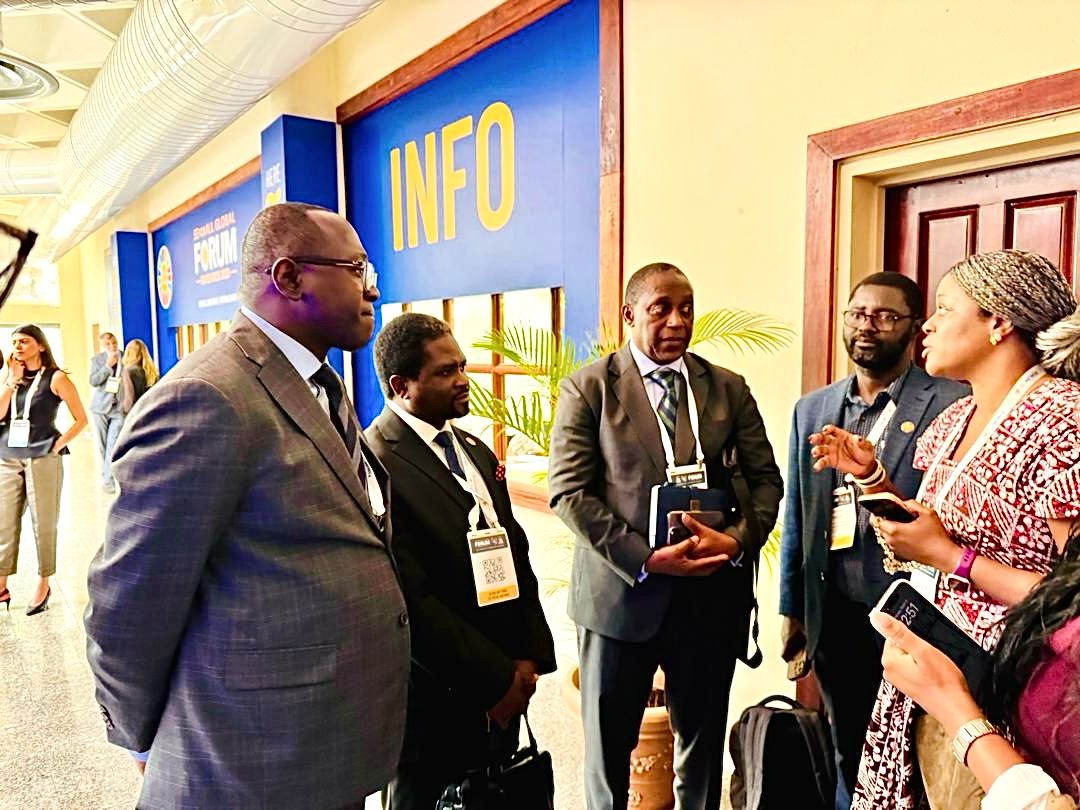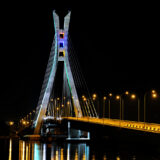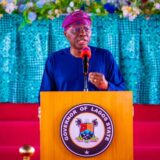Addressing the Global Energy Access Gap
Constantine ‘Labi Ogunbiyi, Solad Power Group Chairman
Following the recently concluded 2025 Sustainable Energy for ALL Global Forum in Barbados, here are a few of my thoughts around the current energy landscape and the need for concerted action.
The Growing Challenge
The global energy access gap is widening, with Sub-Sahara Africa bearing the brunt of its impact. As of 2023, nearly 750 million people worldwide lacked access to electricity – almost 600 million of them in sub-Saharan Africa, with approximately 85 million Nigerians without electricity (IEA, Macrotrends). Alarmingly, this number continues to rise. If left unaddressed, this crisis will spiral beyond a major regional (becoming global) challenge, particularly as Sub-Sahara Africa experiences the world’s fastest-growing working-age population, projected to increase by 740 million by 2050.
At a time when urgent action is needed to tackle climate change, some argue for a pause or reversal of environmental commitments, calling for increased focus on industry and trade, reduced environmental spending, and funding freezes. To them (and all of us), the words of American ecologist and evolutionary biologist Guy Macpherson remain strikingly relevant:
“If you think the economy is more important than the environment, try holding your breath while counting your money.” Or, as my wife puts it: “Try counting cash in the dark!”
Time is running out. The deadline to meet Sustainable Development Goal 7 (SDG 7)—ensuring affordable, reliable, sustainable, and modern energy for all—is now less than five years away. Despite persistent infrastructure and financing challenges, there are significant opportunities to fast-track universal energy access in the region.
The Need for a Just Energy Transition
Accelerating the clean energy transition is not just an environmental necessity but an economic imperative for Sub-Sahara Africa. The concept of a just energy transition, which gained momentum at COP28 in December 2023, emphasizes reducing fossil fuel financing while ensuring that vulnerable communities receive support in transitioning to clean energy.
Africa has a unique opportunity to attract investment by leveraging its natural resources—fossil fuels, critical minerals, and renewable energy potential—to drive economic growth and a sustainable energy transition. With rising fossil fuel prices, countries like Nigeria, Angola, and Mozambique can reinvest revenues into infrastructure, industrialization, and clean energy projects. Instead of exporting raw materials, Africa can focus on refining oil, expanding gas-to-power projects, and building renewable energy supply chains.
Africa is in a unique and paradoxical position:
- The continent contributes less than 3% of global emissions; and
- It holds significant fossil fuel reserves, yet much of its production benefits the Global North.
The energy transition is not just a shift—it is a transformational overhaul toward a cleaner, more sustainable future. This transformation is driven by:
- Environmental concerns;
- Shifting global power dynamics;
- The right of Global South nations to industrialize;
- Technological advancements; and
- Evolving consumer and investor priorities.
Expanding energy access will stimulate economic growth, drive industrialization, and create up to 4 million jobs, positively impacting:
- Healthcare;
- Education;
- Agriculture and agro processing;
- Food security; and
- Community development.
The challenge lies in balancing short-term fossil fuel gains with long-term net-zero goals, requiring policies that reinvest revenues into green energy, electrification, and energy storage. International partnerships and climate financing will be key to ensuring a just and resilient transition.
At the 2025 United Nations Sustainable Energy for All (SEforALL) Global Forum in Barbados last week, world leaders convened to discuss solutions. The Solad Power Group team was proud to participate, engaging with key decision-makers and businesses to address the most pressing energy challenges.
Key themes included:
✅ Accelerating the energy transition
✅ Closing the energy access gap
✅ Financing clean energy projects
✅ Scaling decentralized energy solutions
Unlocking Africa’s Energy Potential
Africa holds 60% of the world’s highest-quality solar resources—yet it accounts for just 1% of global solar generation capacity. According to the International Energy Agency (IEA), to meet its energy and climate goals, Africa requires $190 billion in annual investment between 2026 and 2030, with two-thirds of this funding directed toward clean energy. With the withdrawal of USAID and aid reductions from UK and France amongst others, it will be necessary to replace this funding gap from other sources.
The continent has a once-in-a-generation opportunity to:
- Reduce dependence on fossil fuels; and
- Expand decentralized energy solutions to drive economic transformation.
However, unlocking this potential requires:
- A stronger enabling environment;
- State support;
- Major investments in transmission, distribution, and last-mile connectivity (especially in off-grid areas); and
- Blended financing and financial instruments at affordable rates, recognizing the risks tied to local currency revenue streams.
Africa is actively seeking to address clean energy funding gaps through key initiatives. The Mission 300 (M300) initiative, led by the World Bank, Rockefeller Foundation, and African Development Bank, aims to electrify 300 million people in Sub-Sahara Africa by 2030 through investment in generation, transmission, distribution, and sector reforms.
At the SEForAll Global Forum, the Africa Renewable Energy Manufacturing Financiers’ Collective was launched to enhance cooperation between financiers and manufacturers, catalyse green finance, and expand local renewable energy manufacturing.
African energy organizations can also learn from OLADE, the Latin American Energy Organization, which is collaborating with SEForAll to strengthen policies, regulations, and tariffs for a just energy transition in Latin America and the Caribbean.
Overcoming Barriers & Recent Milestones
Significant investment and policy support are critical to scaling Africa’s renewable energy infrastructure. Despite housing one-fifth of the world’s population, Africa attracts only 2% of global energy investment.
However, recent commitments made during the SEforALL Global Forum signal positive momentum:
- DRE Nigeria Fund ($500M)
A $500 million Distributed Renewable Energy (DRE) Fund was announced by the Nigeria Sovereign Investment Authority (NSIA), SEforALL, International Solar Alliance (ISA), and Africa50. It will finance mini-grids, solar home systems, commercial & industrial power solutions, and energy storage technologies in Nigeria.
- Results-Based Financing (RBF) ($20M)
The European Union, UNOPS, and SEforALL committed $20 million in Results-Based Financing (RBF) through the Universal Energy Facility (UEF) to deploy mini-grids and electrify rural households in Sierra Leone.
- ZE-Gen Fossil Fuel Generator Displacement ($12M)
The IKEA Foundation pledged over €11 million to ZE-Gen, an initiative replacing fossil fuel generators with renewable alternatives across Sub-Sahara Africa, South Asia, and the Indo-Pacific region.
- e-Cooking Support and Scale-Up Programme ($3.5M–$5M)
An initial funding commitment of $3.5M–$5M was announced to accelerate clean cooking solutions in Sierra Leone. This initiative is part of the Middle East Green Initiative’s “Forward7 Clean Cooking” programme, launched in partnership with GeCCo, MECS, and UK Aid.
Looking Ahead
The urgency of achieving universal energy access and accelerating the clean energy transition is beyond question. The focus must now be on collaboration and rapid financing to support developing nations.
By expanding electricity access, we can:
✅ Boost economic productivity;
✅ Drive industrialization; and
✅ Enhance healthcare and education systems—enabling the least-developed nations to play a greater role on the global stage.
As COP30 President-designate André Aranha Corrêa do Lago stated:
“We must refocus efforts on action and implementation—translating words into transformative action on the ground.”
The SEforALL Global Forum has now become a landmark event in the climate calendar, laying the groundwork for COP30. The message is clear:
The time for talking is over—now is the time for bold, collective action.


